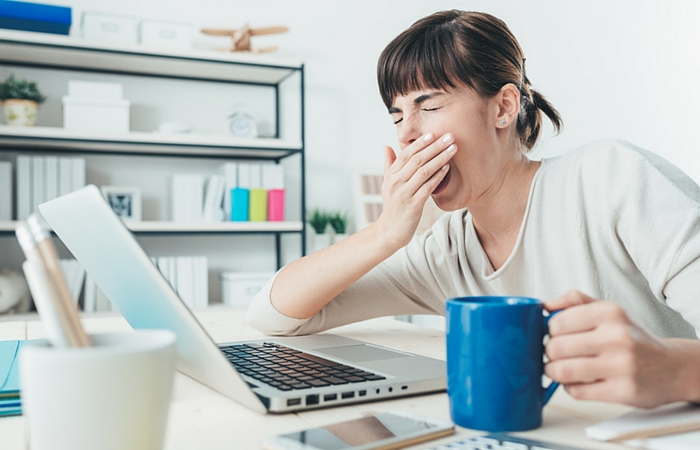Are You Sabotaging Your Sleep?

June 16, 2016
by Mankato Clinic
Sure, that extra cup of coffee during your afternoon break seemed like a good idea at the time, but if you’re lying awake at 3 a.m. unable to sleep, you may soon be regretting that decision.
Research shows that even the most diligent of people who get the recommended 7-9 hours of sleep a night can still wake up feeling groggy and tired. The reason behind the heavy eyelids often comes down to sleep saboteurs.
From caffeine to even negative people, a surprising amount of situations can lead to restless nights. Read on to find out what could be causing you to toss and turn.
Caffeine:
Whether it’s in the form of tea, pop or chocolate, caffeine blocks our body’s ability to know if we’re tired. Instead, caffeine tricks our body in to thinking we have more energy, when in reality it’s just suppressing how tired we actually are. To get a deep and restful night sleep, stay away from coffee or pop at least six hours before bed.
Alcohol:
It may make us feel drowsy as the night goes on, but the effect of alcohol actually hinders our sleeping. Drinking alcohol may cause you to fall asleep faster but in actuality you have more awake periods and less REM (rapid eye movement) sequences even if you have a glass or two in your system.
Negative people:
Toxic friends or negative people who take something out of you cause stress, which leaves your mind staying busy when it should be trying to sleep. The more that you become stressed the harder it is for you to fall asleep. The cycle continues as you become more stressed because of the lack of sleep you’re getting.
Exercise:
Exercising releases endorphins, which tell our brain that it’s go time. By exercising later in the evening or before bed, you’re telling your body that it’s time to be active when it’s actually time to rest.
Screen time:
Mobile devices emit a blue light which can mess with your body’s natural sleep rhythms. In addition, the artificial light suppresses melatonin, which is the hormone that helps us sleep. Put down devices at least two hours before bed so you don’t interfere with your body’s sleep rhythms.